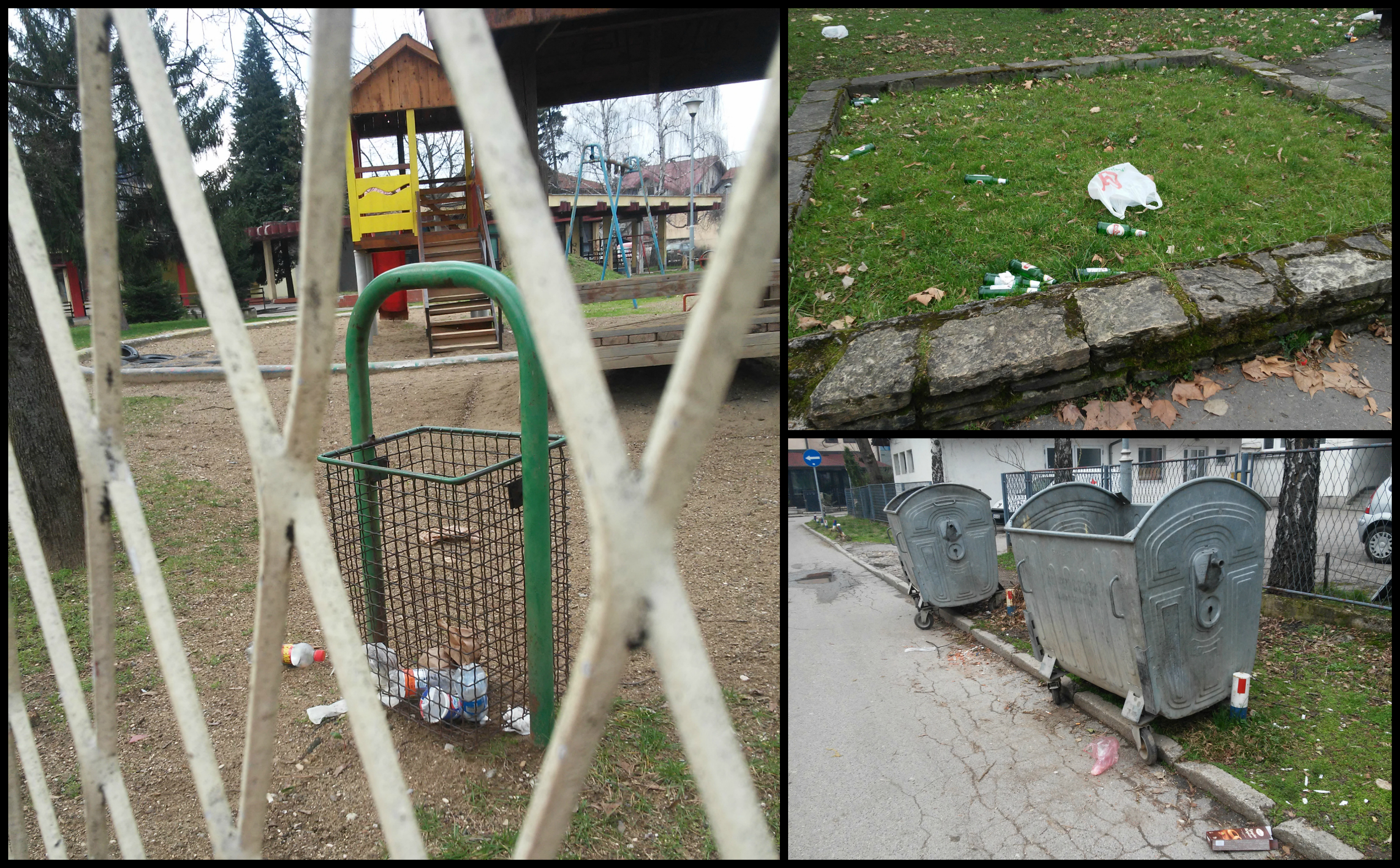
Although it is known as “The Green City”, Banja Luka shows that human negligence is overriding the willingness and efforts of the citizens and institutions in charge of maintaining the city. In certain places, one can see examples that are contradictory to the city’s other nickname “The Beauty on the Vrbas River”.
Environmental protection, specifically in Banja Luka, significantly contributes to a better, healthier life.
The environment and tourism are closely related, and environmental protection poses a significant influence on the touristic potentials, offers, and the overall attractiveness of a destination.

According to tourism expert Mladen Šukalo from the Touristic Organization of Banja Luka, nature-based tourism is the fastest growing sector of tourism, and its potential is often underestimated. Banja Luka has opted for sustainable development, which was formalized in the Banja Luka 2013-2020 Tourism Development Strategy in which the principle of environmental protection plays a key role.
“The state of the environment has a direct influence on Banja Luka’s potential touristic products, such as: health tourism, Banja Luka adventures, and cave exploration. The quality of touristic products depends on our attitude towards the environment, which consumers surely notice,” Šukalo notes.

Since many sporting events are held on the Vrbas River, the Touristic Organization of Banja Luka is aiming to create new touristic ventures based on the principles of sustainable development. These ventures include: the Vrbas Adventure Resort, Banja Luka Hike and Bike, The Green Horseshoe, cleaning up Ljubačevo Cave, landscaping the Banj Brdo picnic area, celebrating International Tourism Day, landscaping the shores of the Vrbas River, and advocating for the treatment of waste waters that flow into the Vrbas River as well as for the protection of certain areas around it.
“The issues of creating waste and managing it, energy efficiency, attitudes towards flora and fauna, and awareness of our surroundings are significant for tourism providers. This is why we are trying to influence both citizens and organizations in charge of environmental preservation, so that these natural beauties can be presented to our tourists in the best possible light,” says Šukalo.

Natural resources are protected in three primary ways: through research, through legal protection, and by practical conservation. Jovica Sjeničić, President of the Association for Research and Conservation of Biodiversity, explains that there are many organizations that fight using legal and advocacy methods to raise the awareness of the public, whereas their particular organization researches biological diversity, and systematizes the knowledge about certain parts of nature in order to monitor its condition.
“We also work to educate the public by publishing various educational texts, working with children in schools, organizing popular science lectures, and organizing three to four events each year that promote wildlife conservation,” says Sjeničić, adding that, in March, they are organizing a conference in association with the Croatia-based Hyla Herpetological Society and the UK-based Rufford Foundation.
Part of the conference will be dedicated to the review of best practices and the possibilities for regional cooperation between biologists, ecologists, researchers and nature conservationists from the Balkans.
Some of the more efficient ways of protecting natural resources are to educate the public and to popularize conservation practices.
“A big challenge for nature researchers is how to engage people and how to get them interested in this issue. There are many reasons for a lack of interest, and, perhaps, the most important might be that today’s society is alienated from nature. People tend to believe that natural resources are unlimited because they don’t possess an understanding about where they are coming from,” explains Sjeničić.

On the topic of public education, it is important to mention the media, which focus their reporting on the topics that people are interested in. Thus, stories on endangered species and other similar topics are not well-represented in our country. The usual justification for this is that there exist other problems that take priority such as unemployment and the like, but this is no excuse for the disregard of nature.
“There has recently been an increased interest in our work, likely because of the things they see on mediums like the National Geographic Channel. However, they still have no knowledge about endangered species of plants and animals or about the research we do on these issues. We have little support from governmental institutions, which primarily reduces our ability to acquire logistical support, which, in and of itself, is also very hard to come by,” Sjeničić admits.

Members of the Center for the Environment have expressed a similar attitude, and point out that their struggle is going to be a difficult one as long as private interests are put before public ones.
“In addition to raising public awareness, which is still necessary throughout BiH, it is essential that all relevant institutions take our natural resources seriously and understand that they must be managed more responsibly. There are only a few journalists who have freedom to continuously report on this issue, and we have a good cooperation with them. As for institutions, we have a good cooperation with the Institute for the Protection of Cultural, Historical, and Natural Heritage of Republic of Srpska, and they have been our partner for years,” says Nataša Crnković, the President of the Center for the Environment.
The Center for the Environment has had several positive experiences when asking citizens to get directly involved in the protection of nature. In Banja Luka, huge steps have been made towards raising awareness about the importance of green spaces in urban areas and the need to protect and cultivate, rather than destroy them.
“As part of a citizen’s initiative, we’ve managed to collect five thousand signatures, which is a clear indicator that the public wants to keep the green space on which a church was supposed to be built in tact. The public has an opinion, as well as the will and a way to fight for the conservation of nature, they just need to be encouraged and, of course, asked about their opinions,” Crnković explains.

There needs to be a shift of mindset before an ecological catastrophe occurs or before we reach a resource crisis, because, once this happens, it will be too late for the quick solutions to which we are so accustomed to. Throwing garbage into garbage bins is not the only way we can make a difference in better taking care of the environment we live in, the rivers we bathe in, and the air we breathe. It is necessary to engage the numerous organizations devoted to protecting the environment as well as to give our own contribution to the conservation effort. If you don’t have the time to do personally contribute, then you can at least support these institutions in their efforts so that life can be better for all of us.






